Basic Arithmetic Normal Addition & Subtraction Worksheets for Ages 6-8
6 filtered results
-
From - To
Our Basic Arithmetic Normal Addition & Subtraction Worksheets for Ages 6-8 are designed to make math fun and engaging for young learners. These worksheets cover essential addition and subtraction skills, providing a strong foundation in basic arithmetic. Tailored for children aged 6-8, our worksheets use colorful illustrations and practical scenarios to facilitate learning, helping students understand and master their numeracy skills. With a variety of problems to solve, these worksheets are perfect for both classroom use and at-home practice. Enhance your child's math confidence and proficiency with our expertly crafted, student-friendly worksheets.
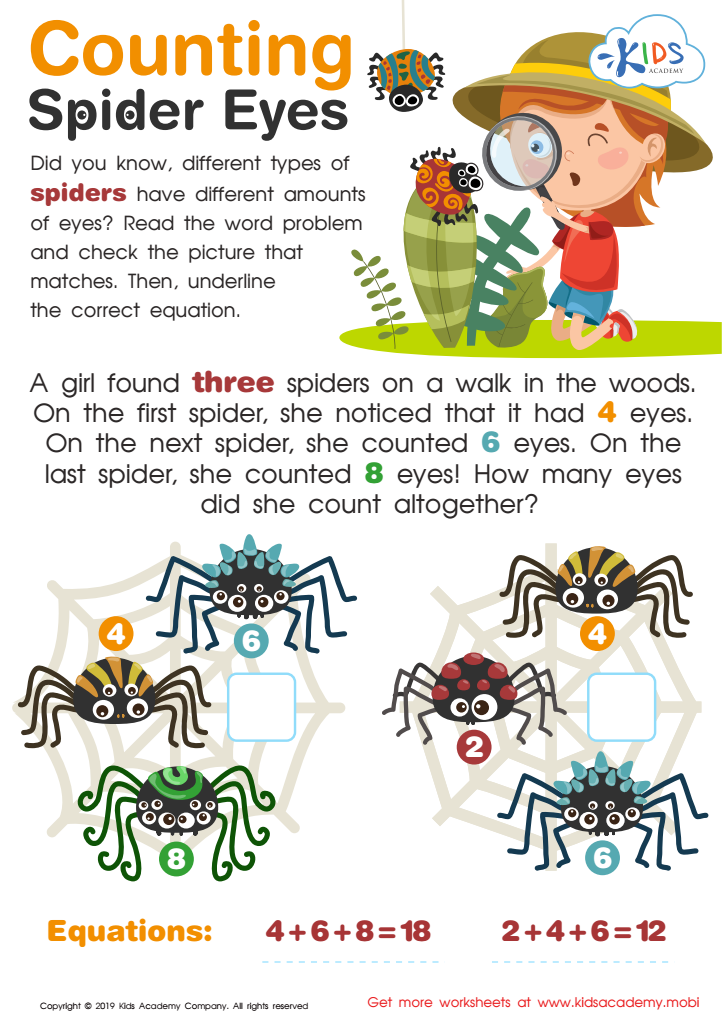

Counting Spider Eyes Worksheet
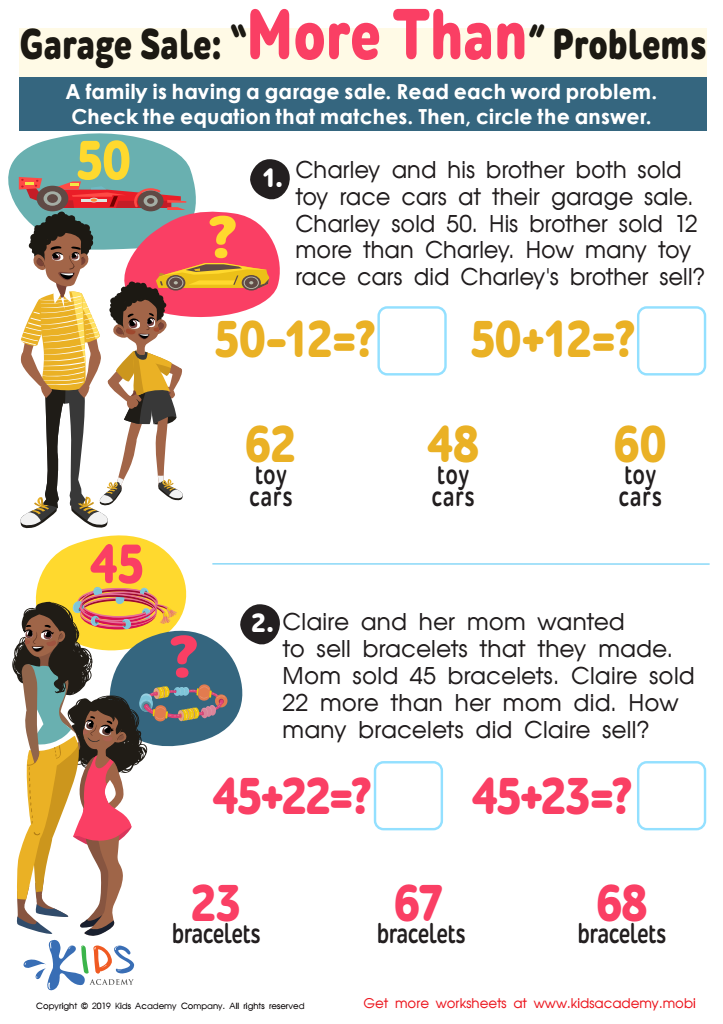

Garage Sale - More yhan Worksheet
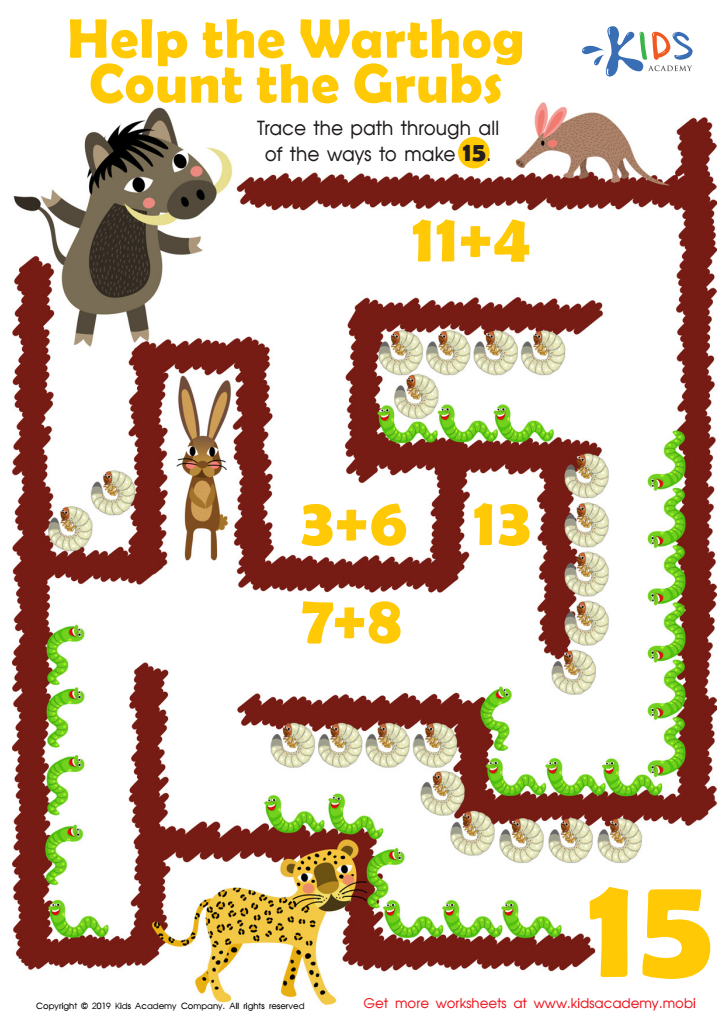

Help the Warthog Count the Grubs Worksheet
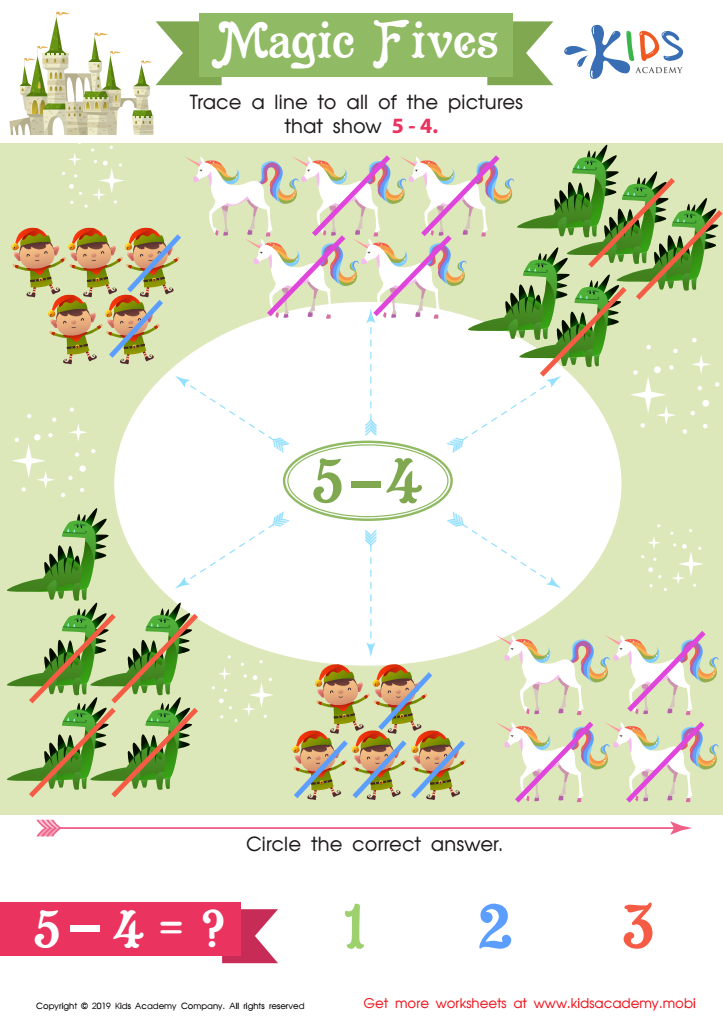

Magic Fives Worksheet
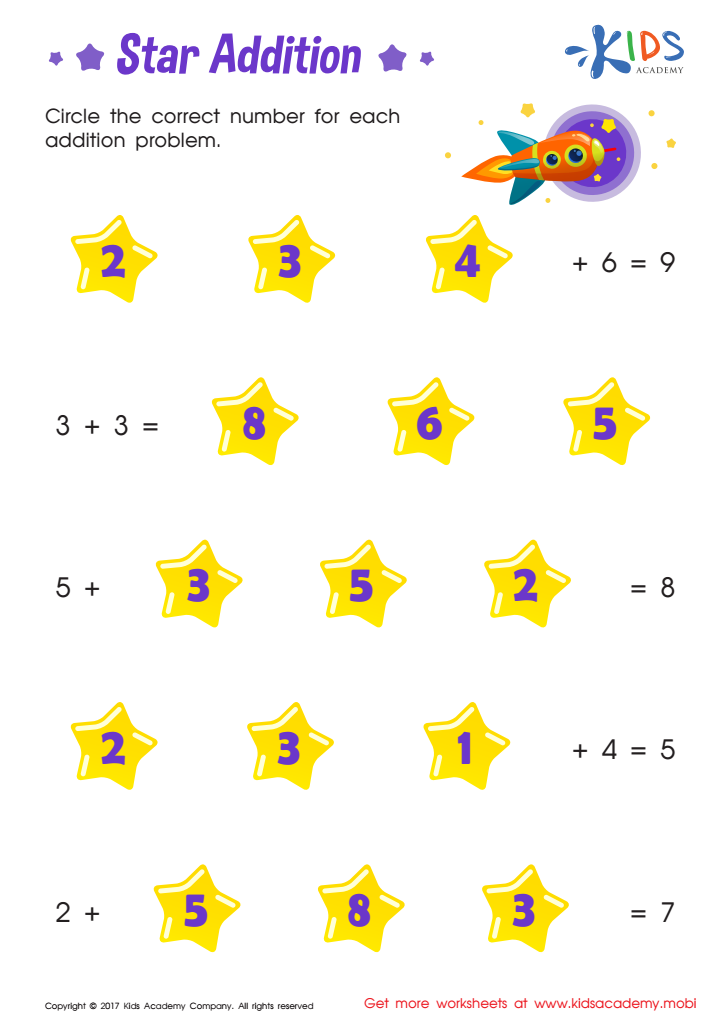

Star Addition Printable
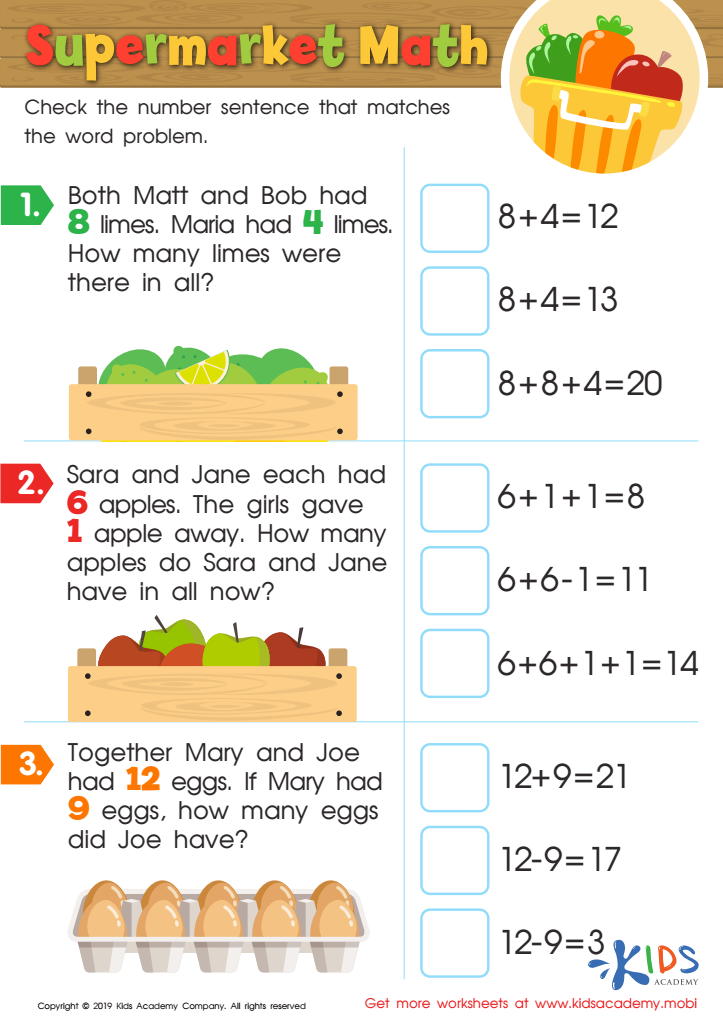

Supermarket Math Worksheet
Basic arithmetic, including simple addition and subtraction, is foundational for children ages 6-8 as it forms the building blocks for all future math learning and everyday problem-solving. At this critical developmental stage, mastering these skills enhances a child's ability to understand more complex mathematical concepts, such as multiplication and division, which they will encounter in the following grades.
For one, arithmetic builds critical thinking and logical reasoning. Children learn to break down problems into manageable parts, fostering analytical skills applicable across various disciplines. Additionally, proficiency in basic arithmetic is crucial for day-to-day activities—whether estimating costs while shopping, dividing a pizza among friends, or determining time intervals.
Mastering these skills early boosts confidence and academic self-esteem. Children who struggle with basic arithmetic might develop math anxiety, negatively impacting their overall academic performance and attitude toward school. However, those who become comfortable with numbers early on tend to perform better not only in math but in other subject areas due to increased confidence and cognitive skills.
Parental and teacher involvement is key. Encouraging practice through engaging and practical activities, offering positive reinforcement, and providing targeted support helps solidify these essential skills. Ultimately, a strong foundation in basic arithmetic equips children to navigate future academic challenges and daily life tasks effectively.

 Assign to My Students
Assign to My Students
















